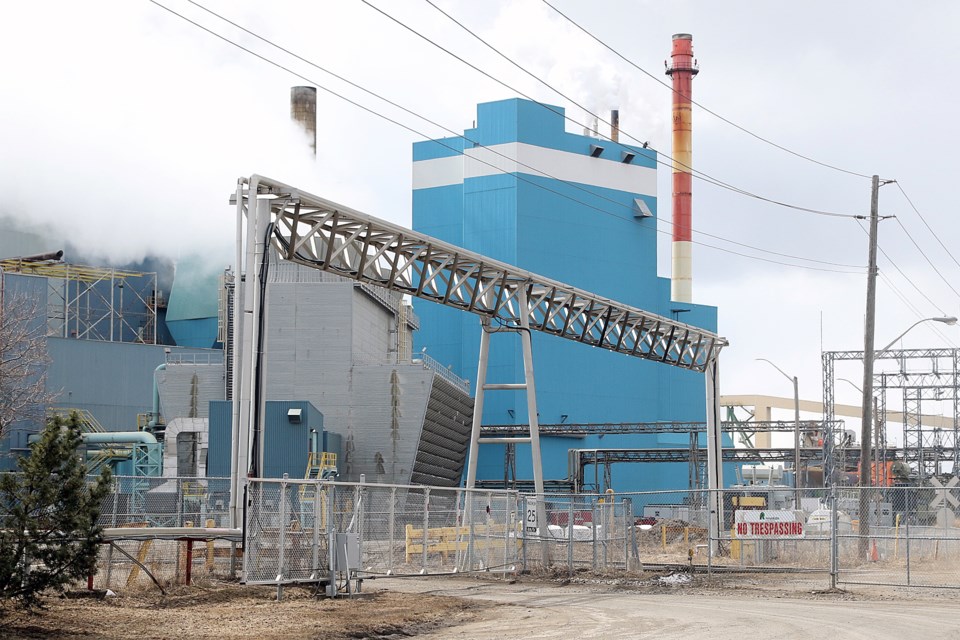THUNDER BAY — The largest union at the Resolute pulp and paper mill in the city wants assurances about a long-term wood supply after ownership is transferred to a U.S. private equity firm.
In announcing the sale of the mill to an affiliate of Atlas Holdings for about US$ 220 million, Resolute said Tuesday that the two parties will also enter into a long-term wood chip and biomass supply agreement.
Resolute, which will continue to operate three sawmills in the Northwest, will keep sending the mill the chips and biomass it needs to make pulp and paper.
Company vice-president Seth Kursman declined to reveal the duration of that business agreement.
"We have a symbiotic relationship. Certainly, we need a customer for chips, and the mill certainly needs to buy the raw material," Kursman said. "So why would the mill go somewhere else when you've got a big sawmill down the street, and why would we sell to someone else when you've got a big pulp and paper mill in the neighbourhood? The commercial ties will certainly continue for years to come."
Stephen Boon, the northern area director for Unifor, which has 300 members at the pulp and paper mill, has some reservations about the longevity of the agreement.
"It's not three or four years that we're worried about, it's 10, 15 to 20 years out," Boon said. "They are going to do a long-term fibre supply agreement, but these have expiries. It's not us, per se, it's our kids. How is that mill going to be situated in the future in terms of making sure they're not having to be held up by another company not only over access to the fibre but also the cost of the fibre?"
Boon said the union expects to meet with Atlas in the coming months to get that question answered "and to have a comfort level to make sure our members are taken care of well into the future in terms of that fibre basket."
Kursman maintained that things have changed significantly since years ago when, he said, mill owners also held significant holdings in woodlands.
"That day is past. You find very few. Other paper mills are buying from the open market. In this particular case, it's in both of our interests."
Although Boon agreed that it's typical for pulp and paper mills to buy wood from outside their traditional forest lands, they usually also have a licence of their own, and the bulk of their chips are coming from the forests they manage.
"They replant, they control the cutting strategy," he said. "Even if you buy 20 per cent of your chips from outside the region or outside companies, there's still that reliable fibre basket that you control yourself. When you run an operation where all of your chips come from outside, that isn't a normal situation."
New owner has capacity to make investments in the mill
Aside from those concerns, he said Atlas is a large company with the potential to make the necessary investments in the mill, "so it's a positive to have a company with some clout and to be able to properly manage a facility."
A spokesperson for Atlas Holdings declined a request Tuesday for an interview, but in a statement Atlas partner Neil Mahajan said, "Many Atlas businesses are landmark companies in their regions, just as the Thunder Bay mill has been since 1919. We understand Thunder Bay's importance as a pillar of the local economy, and we look forward to bringing our deep experience in pulp and paper as we convert the mill into a stable, independent enterprise and build a bright future for Thunder Bay."
The company was started by two investors in 2002 with the purchase of a small paper mill in Indiana employing just 85 people.
Today it and its affiliates own 26 companies employing 50,000 people in 300 manufacturing and distribution facilities around the world.
Toronto-based forest industry analyst John Duncanson, the executive vice-president and timber analyst at Corton Capital, said Atlas has "quite a bit of experience" in the forest industry, and currently holds a big interest in Twin Rivers Paper with a pulp mill in Edmundston, N.B., and a paper mill in the state of Maine.
"They did have an interest in an Alberta company called Millar Western. They sold the sawmills just recently to Canfor, and they still have a part interest in the pulp mill at Millar Western."
According to Duncanson, the private equity group usually keeps existing management in place when it makes a new acquisition.
"They don't sit on these for a long time — usually between five and 10 years — before they move on to something else," he said.
He's previously described the Thunder Bay mill as having having numerous strengths, including access to excellent fibre, a good location, and a strong workforce.
"The pulp mill is producing probably the very best quality pulp in the midwest. It's probably going to be there forever," Duncanson said in an interview last November.
— TBnewswatch




